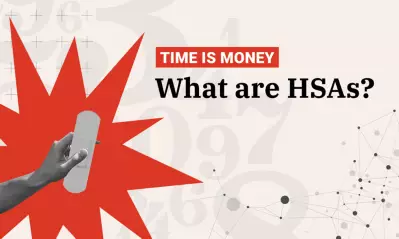How (and why!) to hydrate
This article was updated on December 1, 2023.

Written by Laurie Davies

This article was reviewed by Raelene Brooks, Dean, College of Nursing.

Spring is the air, and whether youâre hitting the books or hitting the great outdoors, itâs important to hydrate.
After all, water makes up . Good hydration carries nutrients and oxygen to our cells, lubricates joints and helps our kidneys and liver work properly. If we donât hydrate enough â in other words, become dehydrated â weâre at risk for . None of these are helpful for performing well in school, much less enjoying days outdoors with our family or friends.
No doubt, life gets busy. But if youâre in the habit of going head-down into your studies without thinking about drinking, you may be depriving your body from performing at its peak.
Hydration helpers
âIf youâre feeling thirsty, youâre already dehydrated,â says SMľ÷˝ĚËů College of Nursing Associate Dean for Undergraduate and Doctoral Studies Linnea M. Axman, DrPH. âNot everyone knows that.âĚý

Ěý
Another lesser-known fact is thatĚýif youâre hungry, you might actually be thirsty. So, to go for a full feeling, especially if youâre moving toward weight-loss goals, try to slake your thirst first.
Here, weâll break down the pros and cons of four go-to options, with tips onĚýhow to get more hydrationĚýinto your daily rotation.
H3 Headline
Water
Pros: Water is theĚý. Water isĚýcaffeine-, calorie- and sugar-free, and itâs readily available. Need a strategy for making sure you get more? Axman has you covered.
âWhen I was in the Navy, we would actually set an alarm to drink water,â she says.
Other strategies? Start the morning off with a glass of water or fill a water bottle and take it with you everywhere. If you donât like plain water, add lemon or lime or infuse a pitcher with pomegranates and oranges or strawberries and mint. (Just make sure you wash the fruit to avoid germs.)
Cons: While it is theoretically possible to drink too much water, itâs unusual. Itâs more likely that the average healthy adult will not drink enough water, Axman says.Ěý
Coffee
Pros: Coffee is high in antioxidants and high in vitamin B. Recent studies even found thatĚý. And coffee may lower risk for heart disease and liver problems.
âCoffee is a stimulant, so if thatâs what youâre using it for, thatâs OK,â Axman says.
Cons: Thereâs a big but. Coffee is a diuretic, so at a certain point it will stop adding to our fluid intake and subtract from it instead. Plus, all that caffeine accumulates in the brain, Axman says, which can start messing with sleep. The coffee youâre swigging to stay awake may actually keep you awake at inopportune times.
Axman suggests this: If youâre unable to sleep through the night, or if you feel nervous and jittery, dial down the coffee intake to see if that helps â especially if you add sugar or sweetener to your coffee. Experts recommend no more than 400 milligrams of caffeine a day, which is roughly four cups max.
Tea
Pros: If youâre looking for an energy boost without all the caffeine of coffee, tea is a good bet. Black tea has roughly half the caffeine of coffee, while green tea hovers around one-third. Many caffeinated and herbal teas contain antioxidants, which help reduce risk of disease, includingĚý.
Cons: Too much tea may lead to digestive or GI issues. Additionally, there are many types of tea â and claims about them â so itâs important to know whoâs putting the claim out there, Axman advises. Itâs also important to understand the different types of herbal tea.
âSome will truly make you sleepy. If you need to study, donât drink chamomile or passionflower tea,â she says.
Energy drinks
Pros: Some energy drinks have the herbal extract ginseng, whichĚý, especially mental alertness.
Cons: Some energy drinks may have up to 300 milligrams of caffeine in addition to up to 12 teaspoons of sugar plus a supplement called guarana,Ěýwhich also contains caffeine. That means total caffeine and total sugar for an entire day might be consumed in just one can!
That said, not all energy drinks are created equal. âWhat I would say is that we canât make a monster â ha-ha â out of all energy drinks. They have their place occasionally,â Axman says. (Has anyone out there pulled an all-nighter for a big paper?) âBut if consumed regularly and in high quantity, energy drinks may affect sleep quality and contribute to heart problems, diabetes and stress or inflammation.â
In the end, Axman advises consumers to read labels of what theyâre drinking just as they should for what theyâre eating. âMake an educated decision. Sometimes you need a get-me-over and thatâs OK,â she says. âAs the saying goes, âEverything in moderation.ââ
And that includes all-nighters.

ABOUT THE AUTHOR
A journalist-turned-marketer, Laurie Davies has been writing since her high school advanced composition teacher told her she broke too many rules. She has worked with SMľ÷˝ĚËů since 2017, and currently splits her time between blogging and serving as lead writer on the Universityâs Academic Annual Report. Previously, she has written marketing content for MADD, Kaiser Permanente, Massage Envy, UPS, and other national brands. She lives in the Phoenix area with her husband and son, who is the best story sheâs ever written.Ěý

ABOUT THE REVIEWER
Dr. Raelene Brooks, dean of the College of Nursing, has been a registered nurse for more than 25 years and practiced extensively in the areas of ICU, trauma and critical care. Her publications include a focus on nursing education, critical care and diversity, equity and inclusion. She is a leader in creating, guiding and launching innovative curriculum.
This article has been vetted by SMľ÷˝ĚËů's editorial advisory committee.Ěý
Read more about our editorial process.
Read more articles like this:
6 Ways to Afford Degrees and Industry Certifications
Tuition and Financial Aid
September 12, 2023 ⢠6 minutes


